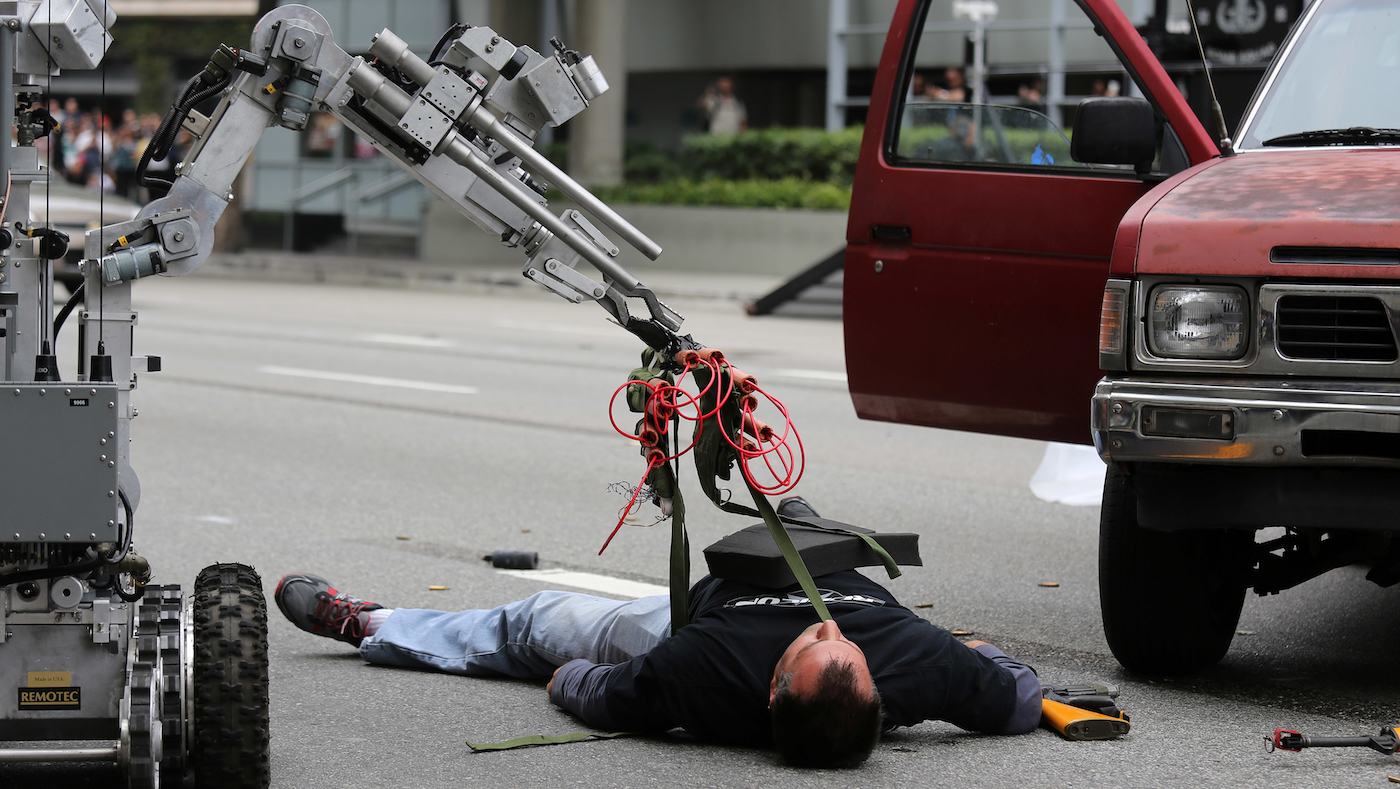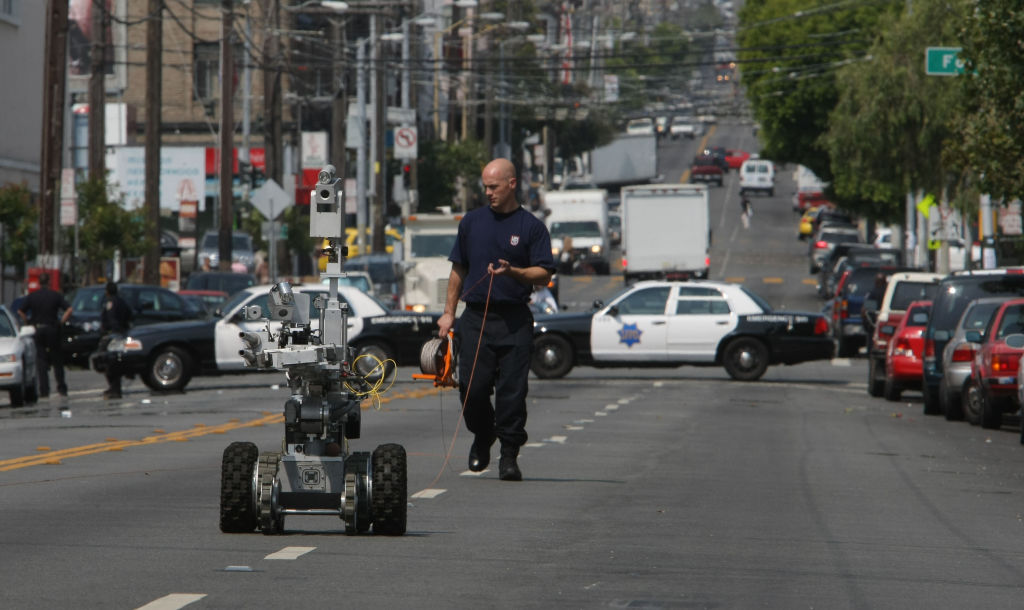One in three jobs at risk from robots: which roles will die out?
Low-paid repetitive jobs most likely to be replaced by robots and computers over the next 20 years

A free daily email with the biggest news stories of the day – and the best features from TheWeek.com
You are now subscribed
Your newsletter sign-up was successful
One in three British workers could be replaced by a computer or robot over the next two decades, new research has warned.
A joint report from the University of Oxford and Deloitte claims that ten million jobs are at risk from huge advances in technology, with low-paid repetitive roles most likely to be replaced.
Manufacturing is likely to face greater automation, it says, while roles that require greater skills, creativity and knowledge are less susceptible.
The Week
Escape your echo chamber. Get the facts behind the news, plus analysis from multiple perspectives.

Sign up for The Week's Free Newsletters
From our morning news briefing to a weekly Good News Newsletter, get the best of The Week delivered directly to your inbox.
From our morning news briefing to a weekly Good News Newsletter, get the best of The Week delivered directly to your inbox.
People earning less than £30,000 a year are five times more likely to see their jobs automated than those paid £100,000, the new research warned.
The Daily Telegraph suggests a new "under-class" could be created of low-skilled people whose jobs have been taken over by machines.
Angus Knowles-Cutler, a senior partner at Deloitte, said: "A widening gap between the 'haves' and 'have nots' is also a risk as lower skill jobs continue to disappear."
'High risk' jobs include:
A free daily email with the biggest news stories of the day – and the best features from TheWeek.com
- Office and administrative support
- Sales and services
- Transportation
- Construction and extraction
- Production
'Low risk' jobs include:
- Skilled management
- Financial services
- Computing
- Engineering and science
- Law
- Education
- Arts and media
- Healthcare
- Community services
Knowles-Cutler said that since 2001, 65 per cent of librarian roles had already disappeared, as well as almost half of all PAs and secretaries.
On a brighter note, the report said that new high-skilled jobs will also be created, which have the potential to outnumber the millions that face elimination. This will require the workforce to gain the necessary skills to fill these positions.
Knowles-Cutler noted that the UK had dealt with similar changes before, such as during the industrial revolution, and has an advantage over other nations because London already has the highest number of skilled jobs in the world.
Nevertheless, the report recommends that the UK should start preparing for change by educating people with the digital know-how, entrepreneurship and problem-solving skills that are less likely to be replaced by developments in technology.
-
 Local elections 2026: where are they and who is expected to win?
Local elections 2026: where are they and who is expected to win?The Explainer Labour is braced for heavy losses and U-turn on postponing some council elections hasn’t helped the party’s prospects
-
 6 of the world’s most accessible destinations
6 of the world’s most accessible destinationsThe Week Recommends Experience all of Berlin, Singapore and Sydney
-
 How the FCC’s ‘equal time’ rule works
How the FCC’s ‘equal time’ rule worksIn the Spotlight The law is at the heart of the Colbert-CBS conflict
-
 The robot revolution
The robot revolutionFeature Advances in tech and AI are producing android machine workers. What will that mean for humans?
-
 Amazon's robotaxi looks to be Waymo's biggest competitor
Amazon's robotaxi looks to be Waymo's biggest competitorIn the Spotlight The company recently opened a new robotaxi production plant in California
-
 Secret AI experiment on Reddit accused of ethical violations
Secret AI experiment on Reddit accused of ethical violationsIn the Spotlight Critics say the researchers flouted experimental ethics
-
 Space-age living: The race for robot servants
Space-age living: The race for robot servantsFeature Meta and Apple compete to bring humanoid robots to market
-
 Is the world ready for Tesla's new domestic robots?
Is the world ready for Tesla's new domestic robots?Talking Points The debut of Elon Musk's long-promised "Optimus" at a Tesla event last week has renewed debate over the role — and feasibility — of commercial automatons
-
 Is the era of robotaxis over before it ever really started?
Is the era of robotaxis over before it ever really started?Talking Point As the nascent self-driving ride service industry gears up to expand beyond San Francisco, some tech and transportation experts say it's time to pump the breaks
-
 Are killer robots now legal in San Francisco?
Are killer robots now legal in San Francisco?feature Officials vote to allow police to use remote-controlled devices with lethal capability in ‘extraordinary circumstances’
-
 San Francisco approves police request to deploy lethal robots
San Francisco approves police request to deploy lethal robotsSpeed Read